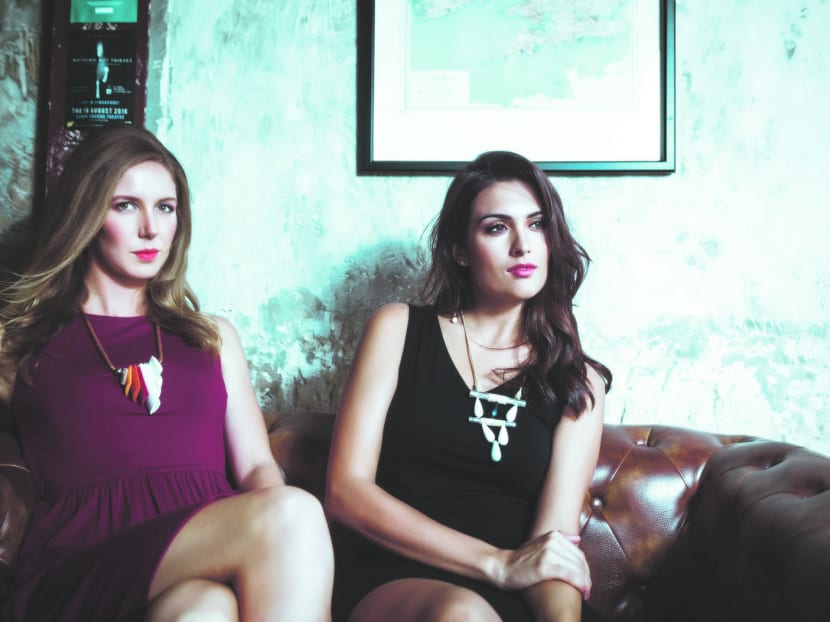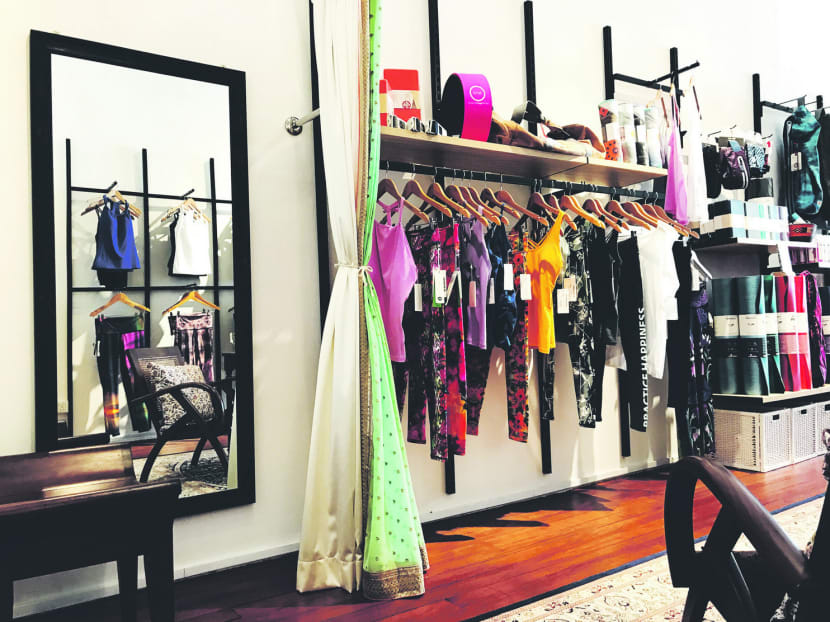‘Green’ fashion takes centrestage
SINGAPORE — The fashion industry is adopting eco-consciousness in its styles. Several mass-market international high street labels have launched eco-collections in recent months.



SINGAPORE — The fashion industry is adopting eco-consciousness in its styles. Several mass-market international high street labels have launched eco-collections in recent months.
H&M, for instance, launched its H&M Conscious Collection 2017 in April, featuring bionic fabric, a polyester that is made from recycled plastic. Mango created a capsule collection using eco-fibres such as organic cotton, recycled polyester, and tencel — a fibre made from natural wood pulp cellulose — and Zara’s #JoinLife collection is made with materials such as organic cotton, recycled wool and tencel.
Now, local stores and fashion labels are also doing the same.
Fashion brand Zhai’s apparels are made from bamboo fibre sourced from a forest in China and tencel.
Owner Danielle Champagne, 47, said: “You cannot do any prints with bamboo fibre like you can with tencel.”
Champagne gets her tencel supply from an Indonesia manufacturer. “They have their own tencel plantation. I can do any custom print that I want,” she said.
By using eco-fibres, the label’s carbon footprint is much lower, Champagne explained. “There’s no pollution created from manufacturing, and no chemical residue going into waterways,” said Champagne.
Moreover, she added, the workers are treated fairly and the fabrics are Oeko-tex certified — an independent testing and certification system for textile products — which means “there’s no chemical residue on the garments”.
At Zhai, its clothing items are priced from S$9 for a spaghetti top to S$129 for a dress.
Another Singapore-born fashion label, Etrican, works with organic cotton that passes the Global Organic Textile Standard (GOTS) to ensure that raw materials are both socially and environmentally sustainable.
The same goes for Etrican’s organic cotton, which comes under GOTS (Global Organic Textile Standard) to ensure it is both socially and environmentally sustainable.
“We also go to the factory once or twice a year,” said co-founder Romanian-born Dragos Necula, 35, who started Etrican with Japanese Yumiko Uno, 36, in 2009. Both of them live in Singapore.
Meanwhile, multi-label store Touch The Toes (TTT) carries local and international brands whose products are made from organic cotton, bamboo blends, and upcycled materials.
Even though TTT does not offer its own apparel, it only carries eco-friendly and socially responsible brands. “We curate brands based on their philosophies, ethics and product range, and how well they fit into the Asian (Singapore) market,” said co-founder Wuan Lin Tan, 42.
On choosing brands that use organic materials, Tan said: “The production of cotton uses massive amounts of pesticides sprayed across fields, causing farmers and villagers health problems. By using organic cotton, they do it with natural methods, resulting in fewer problems.”
She added: “We (also) ask our suppliers whether the working conditions are good, and get to know the process of getting the fabric.”
As such, the production cost of eco-materials can be impacted. “The fact that there are good working conditions for workers, and with Singapore rentals being very high, it does increase our production cost,” Champagne said.
Necula said that Etrican’s production cost is at least 30 per cent higher than regular cotton prices.
“Organic cotton is more expensive to produce at the moment, and even the manufacturing process is more expensive because we don’t use cheap labour — we pay people proper salaries,” Necula added. Clothing from the brand costs from S$20 for a shirt to S$80 for a maxi dress.
GROWING AWARENESS
Champagne, Zhai’s owner, said that she has seen a high retention rate for her customers. “People keep coming back to us because they really like the bamboo (hand)feel, which is extremely soft.”
At Etrican, more than half of their customers are regulars. “People buy because they like our designs but when they find out about the story behind it, it keeps them coming back,” Necula said.
Similarly, Tan said since TTT opened 5 years ago, she has seen an uptick in customers choosing eco-products. “There are more and more people who like the fact that it is organic and recycled,” Tan said.
STILL SOME WAY TO GO
Fashion stylist Yuan Sng, 46, feels that growth of eco-fashion is imminent. “In time, more labels (will) play their part in producing a designer collection in a sustainable way.”
But, while more brands are beginning to offer eco-fashion, it will take more than sustainable upstream production to achieve a long-tail effect. Stylist Lionnel Lim, who has worked with brands such as Furla and Marimekko, feels that there is still a lot of work to be done before consumers will start to be eco-conscious when it comes to fashion.
“I feel that there is a need to market it more aggressively. Eco-fashion is just another fashion category that, if not marketed aggressively with the social benefits and connecting with consumers, consumers will not care about it.”
Eco-fashion may be a fairly new concept, but Necula remains positive. “I feel that gradually, it will become the norm for people to do things sustainably. If we are to turn things around, these practices, be they eco-friendly fashion or sustainable agriculture, will become mainstream.”





